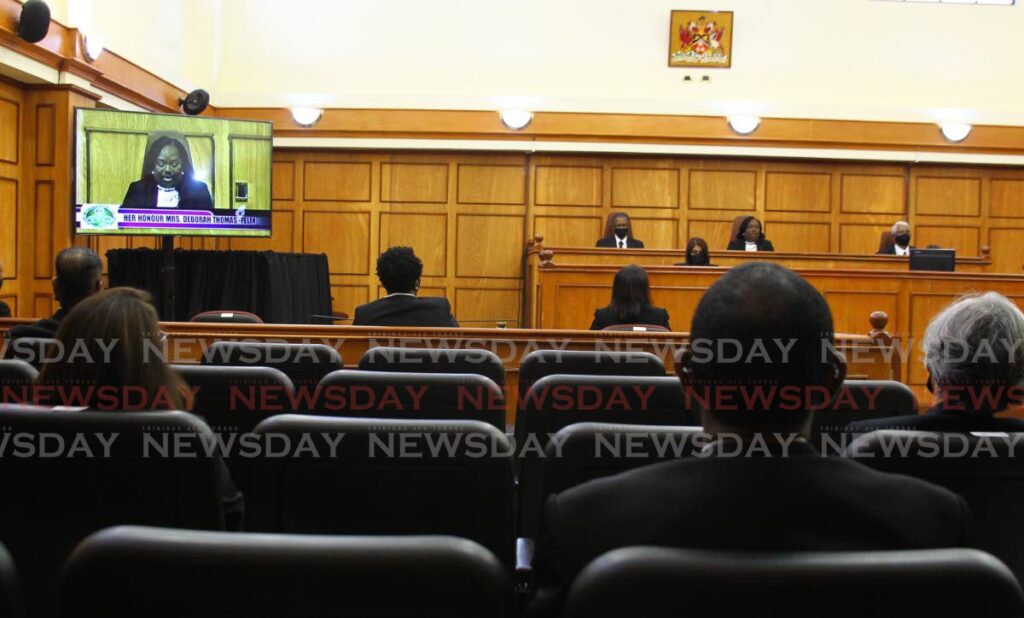A miscarriage of justice

A miscarriage of justice, like any other miscarriage, is not necessarily caused by prejudice, malice or sheer ignorance, although those aggrieved by it may think it is.
If it involves the birth of a child, blame is sometimes placed on the attending midwife or physician.
If it is a case in one of the many courts in our judicial system blame is often placed on the presiding magistrate, judge or tribunal as the case may be.
If it is a matter within the purview of a civil servant or a gatekeeper to authority, the reaction may be a build-up of frustration and rage that leads to a mental disorder, even to violence.
Often the person aggrieved thereby feels that the miscarriage is aimed directly at them, when it really has nothing to do with them; it’s simply due to bad management by the hospital or court administration at some step in the process of recording or otherwise dealing with the matter.
Many a criminal case has been dismissed on procedural grounds because one side or another has not filed a document in the right way, on the right day, or using the right colour ink.
People guilty of all kinds of crime have been known to get away with it not because they were not guilty – they obviously were, as evidence has clearly shown – but because a step in a correct procedure, established a century ago was missed or was made in other than the designated manner.
One of the chief culprits in the miscarriage of justice in the Industrial Court is that the court itself is underfunded and underresourced.
As a result, cases can take years to get on the court schedule, just as in the criminal courts and in the civil jurisdiction or cases referred to the DPP’s Office. And so the dictum that justice delayed is justice denied comes to pass not by spite or mischance, but by mismanagement due to parsimonious budgeting of resources on the part of the government.
The courts’ (plural) administrations are overloaded with cases and under-loaded with days on the calendar to have them heard.
As a result documents submitted when the case was first sent to the court are stored away and not read as they come in by the members (the equivalent of judges in other courts) who will eventually hear the cases, because they will not be assigned until sometime in the future when the case can find a place on the court calendar.
When it is assigned, the members, already working on several other cases before them, often do not get around to reading the documents submitted and depend on what will come out orally during the hearing.
That can work, provided the statements of case have at least been seen, as have the written statements of witnesses who will be called to give evidence on oath, as they are taken orally through an examination in chief and are cross-examined.

It is not exactly the same as a case in a civil or criminal court, as the law set up specifically for industrial relations states that that court is not bound, as those courts are, to follow the strict rules of evidence. Hearsay evidence may be allowed at the court’s pleasure, for example.
There are good reasons for this.
As Sir Isaac Hyatali, the first president of our Industrial Court, said: “The Industrial Court is not strictly a court of law. It is a court of human relations.”
Prescriptive legal rules take less time to follow than do the complexities of human relations.
To this day the fiction is maintained that the strict rules of law in relation to format and presentation can be relaxed to accommodate those who represent employees’ cases, as they do not have to be registered lawyers. Neither do those representing employers.
This is because the philosophy of the two disciplines, law and industrial relations, differs.
The difference is reflected in the award in TD No 194 of 1988, where two workers, caught in the act, were dismissed for stealing product from the company.
The court stated, “The acquittal or conviction of a worker of a criminal offence by a magistrate is irrelevant and does not affect the jurisdiction of this court in a trade dispute concerning his dismissal. We are not bound by the findings and/or order of a magistrate because the issues for determination are different.”
Members of the Industrial Court, whatever their background, are expected to be objective, and unbiased in keeping with the interests of good industrial relations, equity, good conscience and the substantial merits of the case before it.
Justice requires that a decision will not and cannot be made before the case is heard and both parties have a chance to speak and be listened to – not just be heard, but be genuinely listened to before the court rules. To express a decision before this has been done constitutes a miscarriage of justice.
A civil dispute over property can be heard, an award given in favour of one disputant or the other and the parties never have to see or speak to each other again as long as they live.
In a trade dispute where a recognised trade union is one party and an employer is the other, an award will also be given, but the parties to the dispute must continue in partnership afterward. It is like marriage without divorce.
A miscarriage of justice in this situation has more serious implications. The trust that both parties bring to the court in good faith, that neither bias nor personal prejudice on the part of the court will prevail, is the philosophy on which the court was built.
Without that faith the reputation of the court as an arbiter of good industrial relations is lost.


Comments
"A miscarriage of justice"